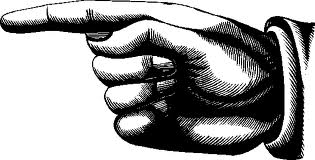“IN place of God, we have a sprawling network of technology, government, business and communications. These forces of globalization have become our religion” (Alix Ohlin, Art journal, Winter 2002)
An Explanation: Man's fall from an ideal state of union with the divine is by no means an idea and has been articulated throughout many centuries and cultures in many ways, be it the Greek idea of the fall of Man, to the Judeo-Christian concept of original sin separating man from God.
By means of my own, flawed analogy- while fully admitting the constraints analogy have in embracing similarity over difference- I will attempt to articulate the same idea, so as to provide a general, encompassing albeit flawed framework to understand our present age, wherein complex power structures of technology stand between us and our environment.
Gold: God, speaking forth the world into being; naming having the power to bestow life.
"names give human beings power over what they name" (Ong 33)
Silver: the Shaman, existing as mediator between Gods and Man; rituals as structures connecting Man to that which is greater than he. Similarly, spells harnessed the power of words, implying each syllable possessed a divine light beyond the meaning humans imposed upon it. The word ‘spell’ implies the power bestowed upon the word is given by a superior power. By speaking forth the word, the shaman mimicked God, providing man with a channel- a medium- by which he could reconnect with a lost Other/whole.
"in a radical sense dead, though subject to dynamic resurrection (33)
Bronze: Kings, who created laws, using words to enforce legislative structures. Words spoken possessed power beyond his meagre being as mere human. The king- by redefining the cosmos for his people- enforced an understanding social realities from which people then operated by. His relationship with the word and it's power is problematic, however, as in defining words- such as virtue, love, glory- he questions the sovereignty of God’s universe, stepping in as a pseudo-God figure himself.
"word as necessarily spoken, sounded... power-driven" (32)
The Margins: Bards- told stories of how people should live their lives; gave people a chronological view of their position in the circular structures of time. In folk culture, affirmed the individual over the mass, giving him the possibility of communing with a greater truth/”myth” without the mediation the shaman/king provided. By being in contact with story, the individual was able to personalize plot and utilize it to his own ends by his own production of meaning.
An Explanation: Man's fall from an ideal state of union with the divine is by no means an idea and has been articulated throughout many centuries and cultures in many ways, be it the Greek idea of the fall of Man, to the Judeo-Christian concept of original sin separating man from God.
By means of my own, flawed analogy- while fully admitting the constraints analogy have in embracing similarity over difference- I will attempt to articulate the same idea, so as to provide a general, encompassing albeit flawed framework to understand our present age, wherein complex power structures of technology stand between us and our environment.
Gold: God, speaking forth the world into being; naming having the power to bestow life.
"names give human beings power over what they name" (Ong 33)
Silver: the Shaman, existing as mediator between Gods and Man; rituals as structures connecting Man to that which is greater than he. Similarly, spells harnessed the power of words, implying each syllable possessed a divine light beyond the meaning humans imposed upon it. The word ‘spell’ implies the power bestowed upon the word is given by a superior power. By speaking forth the word, the shaman mimicked God, providing man with a channel- a medium- by which he could reconnect with a lost Other/whole.
"in a radical sense dead, though subject to dynamic resurrection (33)
Bronze: Kings, who created laws, using words to enforce legislative structures. Words spoken possessed power beyond his meagre being as mere human. The king- by redefining the cosmos for his people- enforced an understanding social realities from which people then operated by. His relationship with the word and it's power is problematic, however, as in defining words- such as virtue, love, glory- he questions the sovereignty of God’s universe, stepping in as a pseudo-God figure himself.
"word as necessarily spoken, sounded... power-driven" (32)
The Margins: Bards- told stories of how people should live their lives; gave people a chronological view of their position in the circular structures of time. In folk culture, affirmed the individual over the mass, giving him the possibility of communing with a greater truth/”myth” without the mediation the shaman/king provided. By being in contact with story, the individual was able to personalize plot and utilize it to his own ends by his own production of meaning.
